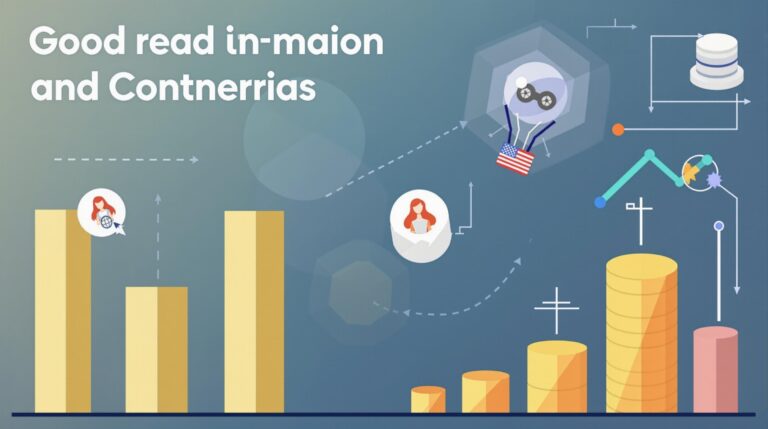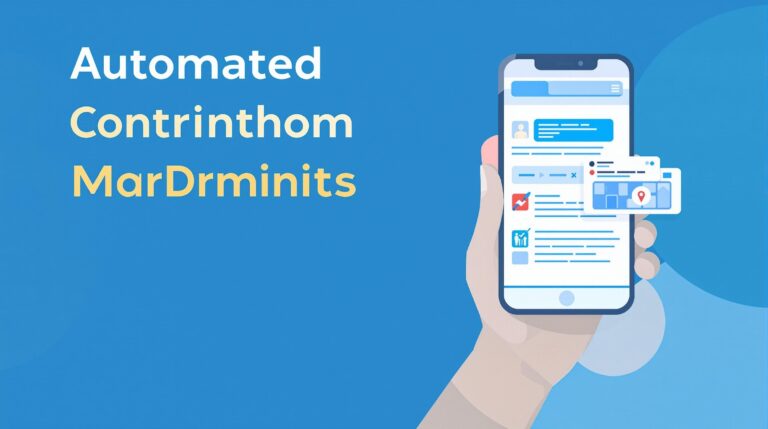Meta Unveils New AI Model for Real-Time Social Content Generation
Meta has unveiled its groundbreaking Llama 4 AI model family, introducing real-time social content generation capabilities that promise to reshape how content is created and shared across its platforms. The new AI ecosystem includes specialized models like Maverick and Scout, along with AI-powered tools that enable everything from virtual influencers to automated advertising content on Facebook, Instagram, and WhatsApp.
- Meta’s Llama 4 family features a revolutionary Mixture-of-Experts (MoE) architecture with 400B total parameters but only 17B active during inference, making it both powerful and efficient
- Over 500,000 AI-generated characters have been created since July 2024, capable of posting text, images, and videos across Meta’s platforms
- Meta AI Assistant has reached 500 million users worldwide across 43 countries and supports 12 languages
- AI-enhanced content has driven a 22% year-over-year increase in time spent on Meta platforms, with AI-edited Reels achieving 4.36% average engagement
- Regulatory challenges include EU restrictions under the AI Act and growing concerns about content authenticity and creator compensation
Meta’s Groundbreaking Llama 4 Family Outperforms Industry Leaders
Meta has introduced its most advanced AI model family yet with Llama 4, marking the company’s first implementation of a Mixture-of-Experts (MoE) architecture. This approach represents a significant shift from traditional monolithic models by distributing computational tasks across specialized submodels.
The flagship Maverick model boasts 128 experts with 400 billion total parameters, though only 17 billion are active during any inference operation. This design delivers impressive performance while maintaining efficient operation costs. Meanwhile, the Scout model processes an incredible 10 million tokens with 109 billion parameters, providing the largest context window of any openly available model.
In benchmark tests, Maverick outperforms both GPT-4 and Gemini 2.0 in coding and multilingual tasks. However, it still lags behind Google’s Gemini 5 and Anthropic’s Claude 3.7 in creative writing tasks. The potential for content marketing is substantial, especially with Meta’s focus on energy efficiency and operational cost reduction.
Half a Million AI Characters Transform Social Media Engagement
Since July 2024, users and businesses have created more than 500,000 AI characters on Meta’s platforms. These digital personas feature detailed biographies, images, and robust generative capabilities that allow them to post text, images, and videos autonomously.
What sets these AI users apart is their real-time interaction capabilities. They can respond to followers, provide around-the-clock customer support, and create branded content without human intervention. Meta AI Studio has enabled influencers to deploy digital twins for constant engagement, though all AI-generated content must carry disclosure labels.
This initiative serves dual purposes: a strategic counter to TikTok’s growing popularity among younger audiences and an opportunity for small businesses to automate their social media presence. However, the rapid proliferation of AI-generated content has raised concerns about misinformation risks and content authenticity.
Meta AI Assistant Reaches 500 Million Users Worldwide
Meta’s AI Assistant has achieved remarkable adoption, reaching 500 million users across WhatsApp, Messenger, and Instagram. Now available in 43 countries and supporting 12 languages, this versatile tool handles everything from trip planning and image generation to real-time search queries.
One of its most popular features is AI-powered Reels editing, which automatically enhances videos and suggests optimal posting times based on audience analytics. The assistant can also generate custom backgrounds via text prompts, with brands increasingly using AI-generated backdrops for Stories and Reels content.
Complementing Meta’s offerings, third-party tools like Sprout Social’s AI Assist analyze top-performing posts to recommend captions and hashtags, further streamlining the social media content automation process for businesses of all sizes.
AI-Powered Advertising Drives Revenue Growth
Meta’s AI Sandbox has transformed advertising on its platforms by automatically generating ad copy variations, backgrounds, and aspect ratios. The impact has been substantial, with 15 million ads created using these generative tools since launch.
Early adopters report a 30% reduction in creative production time, contributing to Meta’s impressive 12% rise in Q1 2025 ad revenue. This performance compares favorably to Google’s Demand Gen campaigns, which focus primarily on video content for YouTube and Discover.
Synthetic data has played a crucial role in training these enterprise models, allowing for more accurate targeting and personalization without compromising user privacy. The technology has proven particularly valuable for small businesses with limited creative resources.
User Engagement Metrics Soar with AI-Enhanced Content
AI-driven feed recommendations have dramatically increased time spent on Meta platforms, with a 22% year-over-year growth reported in the latest quarterly earnings. Content enhanced with AI editing tools shows particularly strong performance, with Reels using AI editing achieving a 4.36% average engagement rate—significantly outperforming static posts.
The broader Llama model ecosystem continues to expand, with over 300 million downloads since its initial release in 2023. Approximately 40% of developers are fine-tuning these models for industry-specific tasks, creating specialized applications across sectors from healthcare to finance.
These engagement metrics validate Meta’s substantial investment in AI technology, suggesting that content enhanced by artificial intelligence resonates with users and keeps them on the platform longer.
Regulatory Hurdles Limit Global Deployment
Despite its technical achievements, Llama 4 faces significant regulatory challenges. The model remains unavailable in the European Union due to restrictions under the AI Act, particularly for enterprises with over 700 million monthly users, which require custom licenses.
Content moderation presents another challenge, with analysts estimating that AI-generated content now accounts for approximately 8% of Facebook posts. This rapid growth has sparked concerns about election interference and counterfeit products, putting pressure on Meta to improve its detection and labeling systems.
The effectiveness of Meta’s current disclosure labels has been questioned, especially in comparison to more stringent requirements proposed under the U.S. AI Labeling Act. Several ongoing lawsuits related to deepfake impersonations highlight the legal risks associated with AI-generated content.
Content Creation Raises Industry Concerns
The Writers Guild of America has voiced strong criticism of AI-generated scripts and creative content, calling for fair compensation when human creative work is used to train AI models. These labor disputes reflect broader tensions within creative industries as AI capabilities advance.
Questions about disclosure label effectiveness continue to dominate industry discussions. Critics point to inconsistent enforcement of AI content markers across Meta’s platforms and the challenges of moderating the growing volume of synthetic media.
As AI content becomes more difficult to distinguish from human-created work, content authenticity verification has emerged as a critical area requiring improved technical solutions and clearer policies.
The Next Frontier: Llama 4.1 and Movie Gen
Meta has announced ambitious plans for Llama 4.1 405B, scheduled for late 2025. This next-generation model will support 128K-token contexts and advanced tool use capabilities, enabling more sophisticated applications like multilingual chatbots and enhanced creative tools.
In the text-to-video space, Meta’s Movie Gen aims to compete directly with OpenAI’s Sora. The technology will allow users to insert themselves into AI videos through simple text prompts, opening new frontiers in personalized content creation.
Global expansion remains a priority, with Meta planning to scale its AI tools to 100 countries by 2026. Special focus will be placed on Hindi, Arabic, and Mandarin localization to reach billions of additional users. However, compute limitations for the massive 405-billion-parameter model present technical challenges that may affect deployment timelines.
Sources:
techcrunch.com: Meta releases Llama 4, a new crop of flagship AI models
thecampusagency.com: Meta’s plan to introduce AI-generated users on Facebook and Instagram
aimagazine.com: Meta AI: the social media AI tools that reached 500m users
ai.meta.com: Large Language Model Llama Meta AI
sproutsocial.com: Instagram Trends








